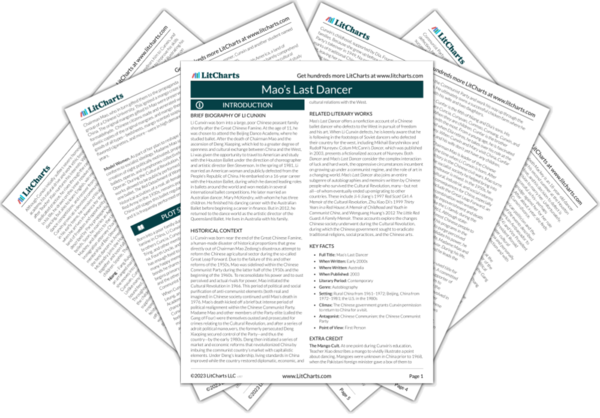Although Cunxin recognizes the momentous good luck that has offered him a chance to escape his life of poverty and hunger, he still hesitates when he thinks about leaving the only home he’s ever known and—more importantly—his family’s love and support. They are the only thing of value that he has had, and they have helped him not just to survive his childhood, but to do it with his head held high. He owes everything to them, even this opportunity, since they have taught him to work hard and show the respect that have earned him positive attention from his teachers.
